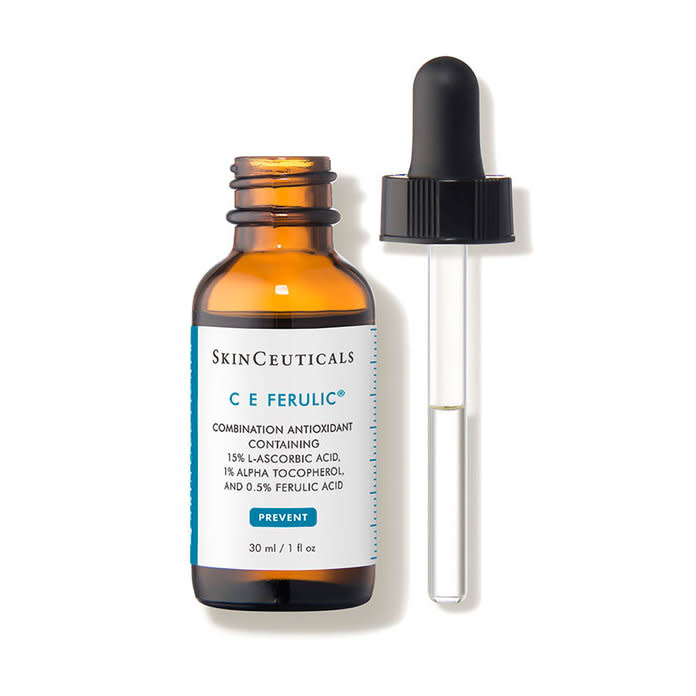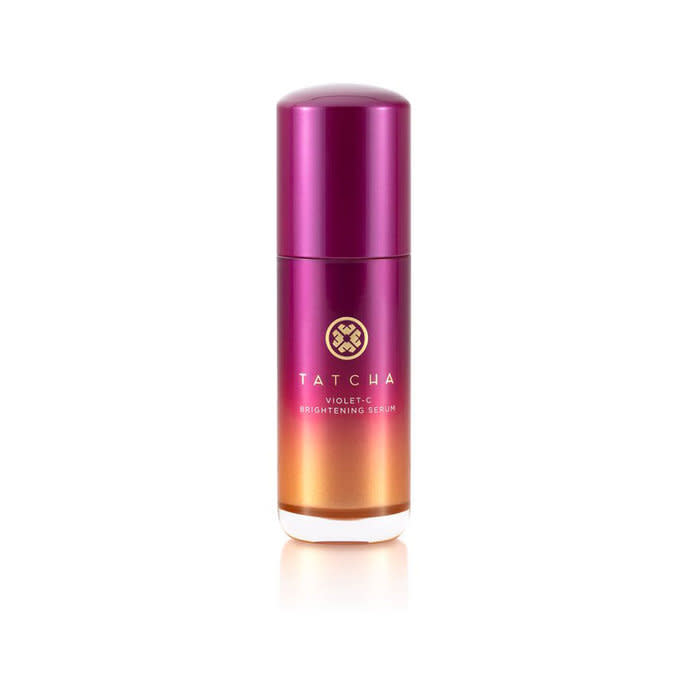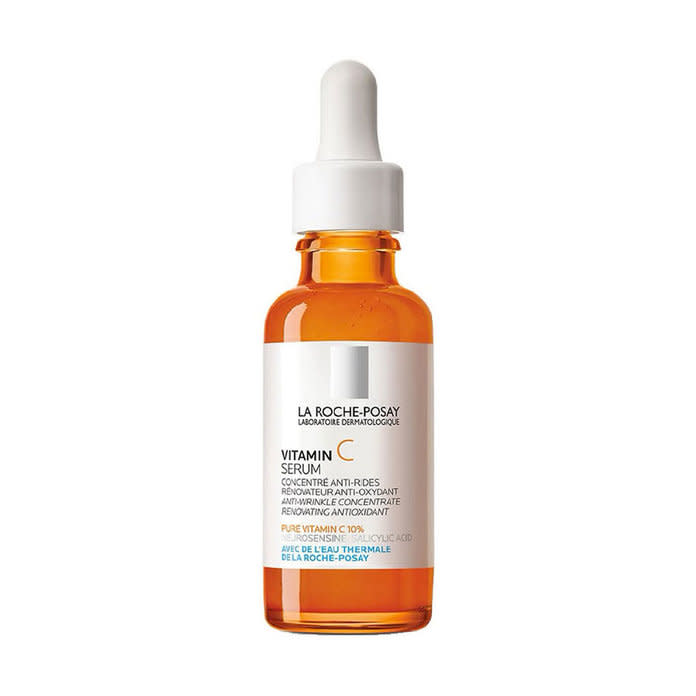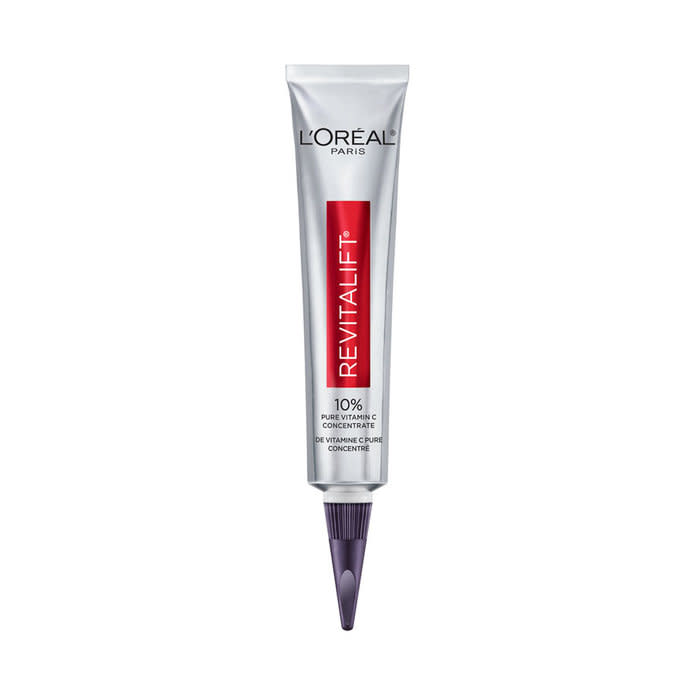All of the Benefits of Using Vitamin C in Your Skincare Routine
Vitamin C serums are one third of the holy trinity of skincare products for a reason: they work. Along with sunscreen and retinol, any dermatologist will be quick to tell you that vitamin C is essential to every basic skincare routine.
So, what makes vitamin C so great? The antioxidant treats a number of common skincare concerns including dark spots, fine lines, wrinkles, and uneven skin texture. But while vitamin C is extremely effective, you'll only see results if you're using it correctly. And just like any other skincare ingredient, it comes with some dos and dont's.
Because knowledge is power, we turned to board-certified dermatologists Dr. Michelle Henry and Dr. Lily Talakoub to break down why vitamin C is so good for your skin, along with how to properly incorporate the ingredient into your routine.
What Are Vitamin C's Benefits for the Skin?
Vitamin C is a powerful antioxidant that neutralizes free radicals, which can lead to premature signs of aging like wrinkles and fine lines. "The antioxidant activity of vitamin C protects against UV-induced damage caused by free radicals, which will prevent accelerated aging and skin cancer," Dr. Henry explains. "It also boosts firmness by regulating collagen production."
The antioxidant can be used to treat dark spots and hyperpigmentation, as well. Dr. Henry says that vitamin C can have lightening effects because it interferes with the enzymes used in melanin production.
RELATED: 15 Vitamin C Serums That Will Give You the Best Skin of Your Life
How Can You Add Vitamin C to Your Routine?
First off, there's multiple forms of vitamin C. Ascorbate and ascorbic acid are naturally occurring forms of the antioxidants, while sodium ascorbyl phosphate is a synthetic, stable, water-soluble form of vitamin C that's produced to use in skincare products.
When shopping for a vitamin C skincare product keep the following in mind: L-Ascorbic Acid is the most beneficial and effective of all forms. However, if acne is also one of your skincare concerns, Dr. Henry says that there's some research that shows sodium ascorbyl phosphate can be effective at treating breakouts when used in one percent and five percent concentrations and incorporated into skincare routines that also include acne-fighting ingredients like benzoyl peroxide.
If you're looking for a vitamin C product that will deeply penetrate the skin, pick one with oil-soluble tetrahexyldecyl ascorbate, a derivative of L-ascorbic acid.
Generally, serums are the most common and popular vitamin C product category, but the ingredient is also found in moisturizers. Dr. Henry says that you can use vitamin C products twice a day, but recommends including one in your morning routine so that you can use retinol at night. (More on that later.)
Dr. Talakoub, on the other hand, likes mixing a few drops of a vitamin C serum into moisturizer for an antioxidant boost. "I like the serum versions, which are bound in oil because they are the most stable forms of vitamin C," she says.
VIDEO: Double Cleansing Is the Foolproof Way to Really Get All of Your Makeup Off
What Are the Side Effects of Using Vitamin C?
Unless you have a specific allergy, vitamin C is an ingredient that's safe for all skin types to use. However, there's some ingredients you shouldn't mix with the antioxidant. Using vitamin C and retinol together can cause irritation and deactivate the ingredients, which makes them ineffective. The same goes for exfoliating AHA and BHA acids. However, you may see some vitamin C products that contain these ingredients at less potent levels.
"Retinoids, Retinols, and AHA and BHA acids should not be mixed with vitamin C as their efficacy may be reduced as they function optimally in environments of very different pH levels," says Dr. Henry. That's why she recommends using vitamin C in the morning, and reserving separate acids or retinol products for nighttime use.
One final note: While vitamin C is highly-lauded, it's notorious for its bad smell. Both dermatologists say that the infamous "stale hot dog water" smell could be caused by the product's combination of ingredients or the vitamin C in it has gone bad. So, make sure you check the expiration date before slathering that serum on your face.
The Best Vitamin C Serums for Skin
Skinceuticals Ferulic C E

Beloved by dermatologists, beauty editors, and skincare obsessives alike, this award-winning serum includes a mix of vitamin C and ferulic acid to protect skin from environmental stressors as well as to prevent signs of aging including fine lines, wrinkles, and dark spots.
To buy: $166; dermstore.com.
Tatcha Violet-C Brightening Serum 20% Vitamin C + 10% AHA

In addition to skin-brightening vitamin C, 10% AHA fruit acids gently exfoliate for extra glowy results.
La Roche-Posay Pure Vitamin C Face Serum with Salicylic Acid

Thanks to the addition of salicylic acid, this vitamin C serum prevents future breakouts on top of fading old acne scars.
To buy: $40; walgreens.com.
Drunk Elephant C-Firma Vitamin C Day Serum

Drunk Elephant's multitasking serum brightens, improves texture, minimizes fine lines and wrinkles, and firms skin. Just don't forget to apply sunscreen afterwards.
L'Oréal Paris Revitalift Derm Intensives 10% Vitamin C Concentrate

This serum is proof that you can find potent skincare products at the drugstore. With 10% pure vitamin C, the lightweight serum minimizes hyperpigmentation. You're also guaranteed to get continued results over time: the airtight tube and waterless formula ensures that the ingredient remains stabilized.
To buy: $24; target.com.

